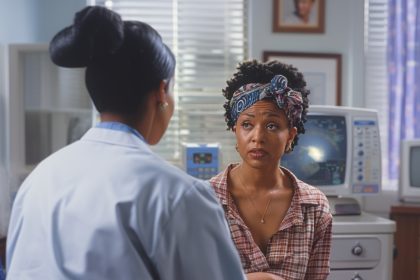Let’s talk about something that’s causing major controversy in healthcare right now, colon cancer screening age limits. A new study just revealed some eye-opening information about how older adults really feel about being told they’re “too old” for certain health screenings.
The surprising truth about age limits in healthcare
Here’s a stat that might shock you, 40% of adults over 50 think it’s completely unacceptable to put an age limit on colon cancer screenings. And honestly, can you blame them? Nobody wants to hear they’re too old for potentially life-saving health care.
Why doctors set these age limits in the first place
- Medical experts say the risks of screening can outweigh the benefits after age 75. Think about it like this, as you get older, the chance of complications from a colonoscopy goes up, while the likelihood of dying from colon cancer actually goes down.
- Current guidelines suggest that routine screenings should stop at age 75 for most people, and definitely by age 85. But here’s the thing, these aren’t one-size-fits-all rules.
- The American College of Physicians takes an even stronger stance, recommending that average-risk adults over 75 skip screenings if they’re expected to live less than 10 more years.
- But many older adults are saying, “Hold up, why are you making decisions about my health based just on my age?”
The real risks nobody talks about
Let’s get real about colonoscopies for a minute. While they’re generally safe, the risks become more serious as you age:
- Bleeding becomes more likely after 75
- The chance of intestinal tears increases
- Recovery time can be longer
- Other health conditions might make the procedure more risky
- The prep process can be harder on older bodies
Why many older adults are pushing back
The new study revealed some fascinating insights about why people disagree with these guidelines:
- Many older adults feel they’re being discriminated against based on age
- Some think it’s just a cost-cutting measure
- Others believe they should have the right to choose for themselves
- Most feel that their overall health matters more than their age
- Many worry about missing early warning signs of cancer
What your doctor isn’t telling you about life expectancy
Here’s something that might surprise you, doctors aren’t just looking at your age when they make screening recommendations. They’re considering:
- Your overall health condition
- Your family history
- Your previous screening results
- Other health risks you might face
- Your personal preferences and values
The conversation you need to have with your doctor
Instead of accepting or rejecting screening guidelines outright, here’s what you should discuss:
- Your personal health history and risk factors
- Your family history of colon cancer
- Your comfort level with different screening options
- Your other health conditions and how they might affect screening
- Your goals for your healthcare
What this means for your health decisions
The bottom line is that healthcare decisions should be personalized. Here’s how to take control:
- Don’t accept a one-size-fits-all approach
- Ask questions about your specific situation
- Consider getting a second opinion
- Talk about alternative screening methods
- Make sure your voice is heard in the decision-making process
How to advocate for yourself
Whether you’re over 75 or caring for someone who is, here’s how to be your own health advocate:
- Keep detailed records of your health history
- Bring a list of questions to your doctor appointments
- Consider bringing a family member or friend for support
- Ask about the latest research and guidelines
- Don’t be afraid to seek a second opinion
The future of cancer screening
Healthcare is moving toward more personalized approaches. This means:
- Guidelines are becoming more flexible
- New screening methods are being developed
- Personal preferences are being taken more seriously
- Age alone isn’t the only factor anymore
- Individual health profiles matter more than ever
The bottom line
Your health decisions shouldn’t be based solely on your age. While guidelines are important, they’re just that: guidelines. The right choice for you depends on your personal situation, overall health, and preferences.
Remember, you’re not just a number on a chart. You deserve healthcare that takes your whole picture into account, not just your age.
















